Author Tommy Sands
The Convict of Clonmel
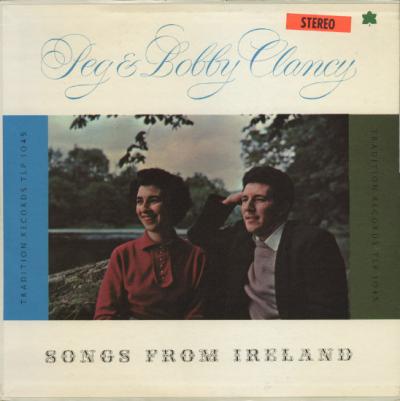
[1820s]
Nota anche con il titolo de “The Gaol of Cluain Meala”.
Versi del poeta di Cork Jeremiah Joseph Callanan (1795–1829).
Interpretata e incisa da moltissimi musicisti irlandesi, da Luke Kelly coi Dubliners a Tommy Sands con la Sands Family ai Dublin City Ramblers.
La “príosún Chluain Meala” (Clonmel, contea Tipperary) ha visto passare molti irriducibili irlandesi, dai Whiteboys, che nel 700 lottavano contro i latifondisti ed i loro abusi, ai Young Irelanders, precursori del repubblicanismo novecentesco…
Nota anche con il titolo de “The Gaol of Cluain Meala”.
Versi del poeta di Cork Jeremiah Joseph Callanan (1795–1829).
Interpretata e incisa da moltissimi musicisti irlandesi, da Luke Kelly coi Dubliners a Tommy Sands con la Sands Family ai Dublin City Ramblers.
La “príosún Chluain Meala” (Clonmel, contea Tipperary) ha visto passare molti irriducibili irlandesi, dai Whiteboys, che nel 700 lottavano contro i latifondisti ed i loro abusi, ai Young Irelanders, precursori del repubblicanismo novecentesco…
How hard is my fortune
(Continues)
(Continues)
Contributed by Bernart Bartleby 2014/8/8 - 14:00
Song Itineraries:
Conflicts in Ireland, From World Jails
Dresden
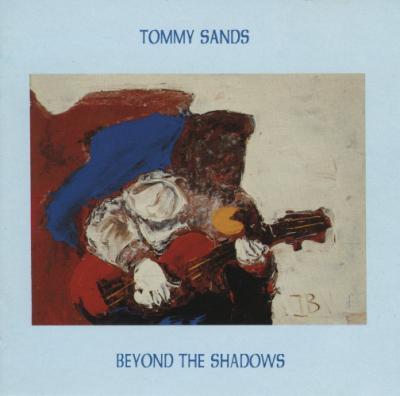
Lenin Square in Dresden is lonelier today,
(Continues)
(Continues)
Contributed by The Lone Ranger 2010/5/21 - 09:44
Children of the Dole
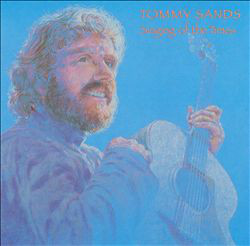
Pictures of the children hanging in the classroom wall,
(Continues)
(Continues)
Contributed by The Lone Ranger 2010/5/21 - 09:43
Time for Asking Why
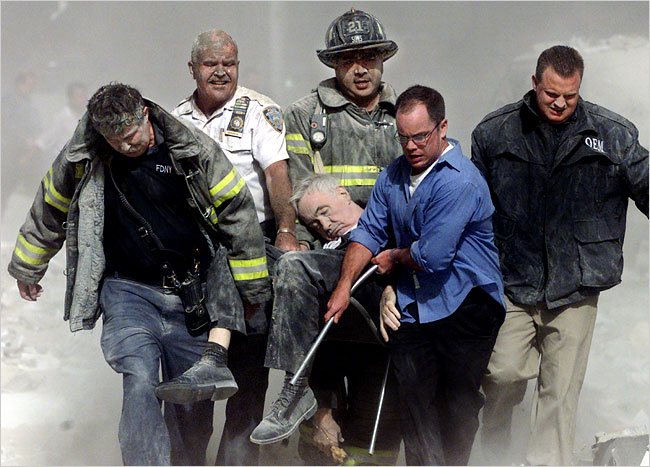
[2009]
Album "Let the Circle Be Wide"
Canzone dedicata a Mychal Judge, prete cattolico, cappellano dei vigili del fuoco di New York, morto nell'attentato dell'11 settembre 2001
Judge era di origini irlandesi e più volte si era recato in Irlanda lavorando in favore del processo di pace. Così Tommy Sands introduce la sua canzone:
"I often think of Fr Mychal Judge. He was chaplain in the New York Fire Brigade and the first official victim in the murderous events of 9/11. I had met Mychal several times when he came to Ireland to help out with our Peace Process. I thought it sadly ironic that the death of someone who had spent his entire life saving innocent lives could be somehow used as an excuse for more innocents to die.
This song is for America not against America. It is directed, however, towards a relatively small group of individuals who come to power from time to time, wrap themselves in stars and stripes and then proceed to behave in the most unjust and shamefully anti American way."
Album "Let the Circle Be Wide"
Canzone dedicata a Mychal Judge, prete cattolico, cappellano dei vigili del fuoco di New York, morto nell'attentato dell'11 settembre 2001
Judge era di origini irlandesi e più volte si era recato in Irlanda lavorando in favore del processo di pace. Così Tommy Sands introduce la sua canzone:
"I often think of Fr Mychal Judge. He was chaplain in the New York Fire Brigade and the first official victim in the murderous events of 9/11. I had met Mychal several times when he came to Ireland to help out with our Peace Process. I thought it sadly ironic that the death of someone who had spent his entire life saving innocent lives could be somehow used as an excuse for more innocents to die.
This song is for America not against America. It is directed, however, towards a relatively small group of individuals who come to power from time to time, wrap themselves in stars and stripes and then proceed to behave in the most unjust and shamefully anti American way."
I remember September turning on the TV
(Continues)
(Continues)
Contributed by Alessandro 2009/9/18 - 18:49
Song Itineraries:
September, 11: Attack on New York
The People Have Spoken
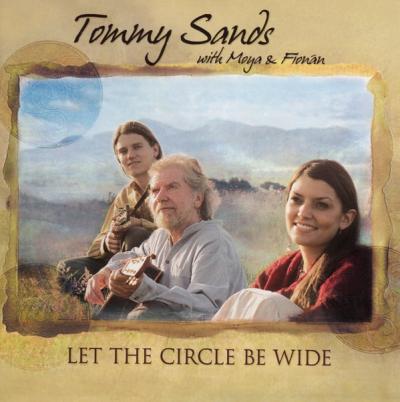
[2009]
Album "Let the Circle Be Wide"
Album "Let the Circle Be Wide"
The people have spoken, a new day is dawning
(Continues)
(Continues)
Contributed by Alessandro 2009/9/18 - 18:32
The Music Of Healing

[1995]
Album "The Heart's a Wonder”
Parole: Tommy Sands e Pete Seeger
Musica: Tommy Sands
Una canzone scritta quando in Irlanda del Nord, a metà degli anni '90, cominciò a profilarsi la speranza nella fine del conflitto e iniziarono i negoziati che poi sfociarono nell'Accordo del Venerdì Santo del 1998.
Nelle note presenti sul disco Tommy Sands ricorda anche la figura del violoncellista bosniaco Vedran Smailović che nel 1992, durante l'assedio di Sarajevo, incurante dei bombardamenti e dei cecchini, per 22 giorni suonò per strada, in pieno giorno, l'"Adagio in sol minore" di Tommaso Albinoni per onorare la memoria di 22 civili uccisi mentre facevano la coda per ricevere la razione di pane... A un giornalista che gli chiedeva se fosse pazzo a suonare sotto i bombardamenti serbi lui rispose: "Perchè non chiedi a quella gente lassù, sulle montagne, se non è pazza a bombardare Sarajevo mentre Smailović suona il suo violoncello?"
Album "The Heart's a Wonder”
Parole: Tommy Sands e Pete Seeger
Musica: Tommy Sands
Una canzone scritta quando in Irlanda del Nord, a metà degli anni '90, cominciò a profilarsi la speranza nella fine del conflitto e iniziarono i negoziati che poi sfociarono nell'Accordo del Venerdì Santo del 1998.
Nelle note presenti sul disco Tommy Sands ricorda anche la figura del violoncellista bosniaco Vedran Smailović che nel 1992, durante l'assedio di Sarajevo, incurante dei bombardamenti e dei cecchini, per 22 giorni suonò per strada, in pieno giorno, l'"Adagio in sol minore" di Tommaso Albinoni per onorare la memoria di 22 civili uccisi mentre facevano la coda per ricevere la razione di pane... A un giornalista che gli chiedeva se fosse pazzo a suonare sotto i bombardamenti serbi lui rispose: "Perchè non chiedi a quella gente lassù, sulle montagne, se non è pazza a bombardare Sarajevo mentre Smailović suona il suo violoncello?"
Ah, the heart's a wonder
(Continues)
(Continues)
Contributed by Alessandro 2009/9/18 - 18:01
Song Itineraries:
Conflicts in Ireland
The Winds Are Singing Freedom
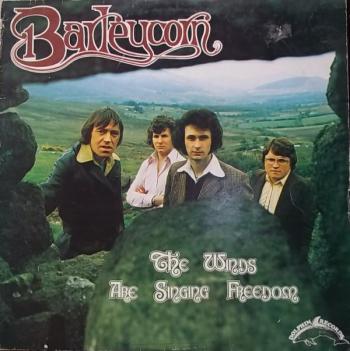
[1972]
L'autore della canzone è Tommy Makem (e non Mary Makem).
Ripreso dal Sito della Gioventù Socialista Tedesca
.
La canzone è stata fatta conoscere dal gruppo "Sands Family".
Der Text und die Musik stammen von Mary Makem aus dem Jahre 1972. Bekannt wurde das Lied durch die "Sands Family" In ihrem Lied geht es um die britische Fremdherrschaft, gegen die die Iren seit achthundert Jahren rebellieren. Am Schluß aber heißt es: "Es gibt eine Zeit, deinen Bruder zu lieben, es gibt eine Zeit, den Haß zu beenden. Wenn du die Saat der Gerechtigkeit säst, wirst du die Früchte des Friedens ernten.
Il testo e la musica sono stati composti da Mary Makem nel 1972. La canzone fu fatta conoscere dalla "Sands Family". Nella canzone si parla della dominazione inglese, contro la quale gli irlandesi si ribellano da 800 anni. Alla fine però recita: "C'è un tempo per amare il tuo fratello, c'è un tempo... (Continues)
L'autore della canzone è Tommy Makem (e non Mary Makem).
Ripreso dal Sito della Gioventù Socialista Tedesca
.
La canzone è stata fatta conoscere dal gruppo "Sands Family".
Der Text und die Musik stammen von Mary Makem aus dem Jahre 1972. Bekannt wurde das Lied durch die "Sands Family" In ihrem Lied geht es um die britische Fremdherrschaft, gegen die die Iren seit achthundert Jahren rebellieren. Am Schluß aber heißt es: "Es gibt eine Zeit, deinen Bruder zu lieben, es gibt eine Zeit, den Haß zu beenden. Wenn du die Saat der Gerechtigkeit säst, wirst du die Früchte des Friedens ernten.
Il testo e la musica sono stati composti da Mary Makem nel 1972. La canzone fu fatta conoscere dalla "Sands Family". Nella canzone si parla della dominazione inglese, contro la quale gli irlandesi si ribellano da 800 anni. Alla fine però recita: "C'è un tempo per amare il tuo fratello, c'è un tempo... (Continues)
And the winds are singing freedom
(Continues)
(Continues)
Contributed by Riccardo Venturi / Bernart Bartleby 2005/6/27 - 03:37
Song Itineraries:
Conflicts in Ireland
×
![]()

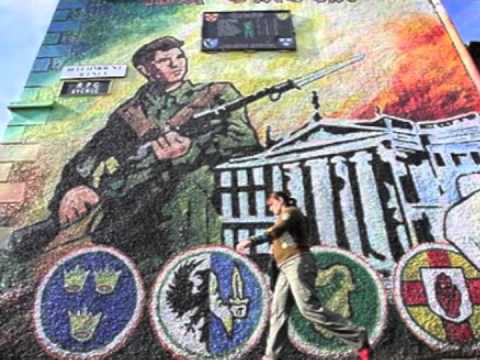
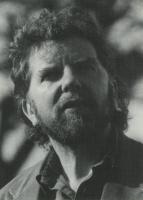
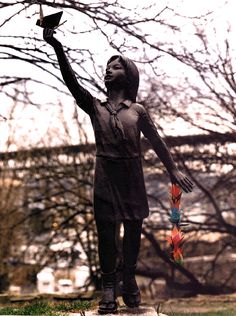
Album "Singing of the Times"
Una canzone sul terribile conflitto nord-irlandese.
Il testo è basato su di un episodio realmente accaduto nel 1974, quando un amico di Sands, tale Allan Bell, di fede protestante, fu ucciso vicino a Newry. Poco dopo si scatenò la vendetta dei protestanti, che uccisero a caso un cattolico, tale Sean O'Malley... O'Malley era un caro amico sia di Bell che di Sands.